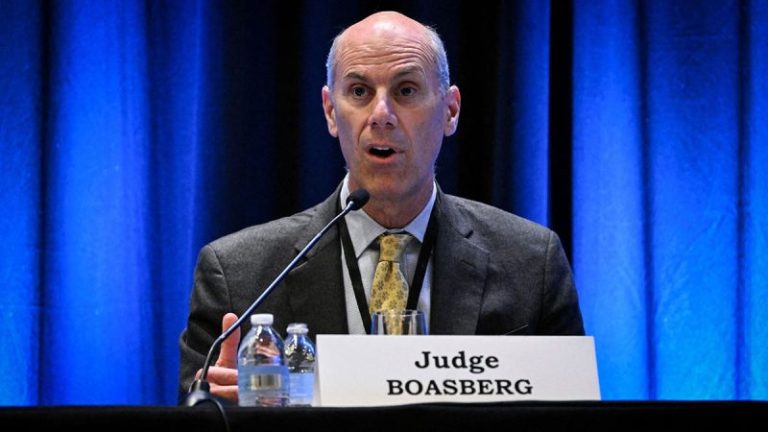KEY HIGHLIGHTS:
- Homerun can use the surface rights as collateral in project financing, independently secure permits and licenses, and is protected against changes in land ownership.
- The Municipality of Belmonte provides commitment of funding allocation for paving of approx. 5km of road connecting Santa Maria Eterna to BR-101, the main federal highway in the region in support of Homerun’s project sites.
Homerun Resources Inc. (TSXV: HMR,OTC:HMRFF) (OTCQB: HMRFF) (‘Homerun’ or the ‘Company’) is pleased to announce that it has signed a definitive surface rights agreement (the ‘Agreement’) over the CENTRO INDUSTRIAL SÃO JOSÉ DA SILICA, located in the Municipality of Belmonte, Bahia, Brazil, in the district of Santa Maria Eterna (‘SME’), for the installation of Homerun’s silica processing plant and solar glass manufacturing facility. The Agreement covers a total area of 64 hectares and is directly contiguous to both BA982 and the Company’s SME Silica resources in the SME Silica Sand District.
The Agreement grants Actual Surface Rights (Direito Real de Superfície / Surface Rights) to Homerun under the terms of Articles 1,369 to 1,377 of the Brazilian Civil Code, and ensures irrevocable transfer of those Surface Rights over the property to Homerun, and once registered on the land’s public deed, ensures total legal security in favor of Homerun, regardless of any eventual transition of ownership of the underlying property by the landowners.
The specific purpose for the granting of those Surface Rights is for the construction of an industrial complex for the manufacture of processed silica and solar glass and correlated products, storage, logistics, research and development, commercial and supporting activities, and any other activity needed for the proper development of Homerun’s industrial projects.
This Agreement replaces the planned donation of the same land previously authorized by the Municipality of Belmonte. This replacement relieves Homerun of the obligations under the MoU, eliminating any risk of having to return of the land to the Municipality, if those Homerun obligations were not met.
In addition to this agreement, Homerun has received a letter of support from the Municipality of Belmonte represented by Mr. Iêdo José Menezes Elias, reaffirming its commitment to support the development of Homerun Resources Inc.’s silica sand project, located in the district of Santa Maria Eterna. As part of this commitment, the Municipality will allocate up to USD $400,000 toward infrastructure improvements related to the project including the completion of the executive project for the paving of approximately 5km of road connecting Santa Maria Eterna to BR-101, the main federal highway in the region. This initiative is part of a broader program led by the Bahia State Secretariat of Infrastructure (SEINFRA).
Brian Leeners, CEO of Homerun stated, ‘We wish to thank the parties to the original MoU and the landowner for helping to get this key deliverable completed in a timely manner before the pending receipt of our Bankable Feasibility Study and Financing of the Industrial Plants. We continue to work with the parties to the original MoU to facilitate the further items under the MoU, including the utilities and the Municipality of Belmonte’s financial support toward the development of infrastructure. The signing of this new Agreement aligns with the execution of the Company’s strategy to develop and construct Homerun’s Silica Processing and Solar Glass Manufacturing facilities, in the Municipality of Belmonte, ensuring the establishment of the entire silica value chain, from resource to extraction to processing to high value-added final product at the Santa Maria Eterna site, maximizing both the socioeconomic and environmental benefits for the people of the State of Bahia.’
Figure 1 – Map of Fazenda São José
To view an enhanced version of this graphic, please visit:
https://images.newsfilecorp.com/files/4082/278042_68bbe7b3549d98ad_001full.jpg
The preliminary area of Homerun’s Surface Rights is shown in Figure 1 and will be reviewed and can be modified if needed in an amended common agreement between the parties. Homerun has full access to the area immediately.
The Agreement is valid for 99 years from the date of the registration in the land’s deed. This term will be automatically renewed for an additional 99 years, unless either of the parties manifest otherwise 5 years before the original expiration date.
The compensation payments will begin in 2027, with one fixed payment of R$ 60,000 due on June 30, 2027. Starting in January of 2028, there will be monthly payments of R$ 50,000 subject to the caveat that if no plant construction has started by January 2028 for reasons beyond Homerun’s control, the payment will be reduced by fifty percent until construction starts. The amounts will be updated annually using the IPCA index (inflation adjustment).
Among the Surface Rights secured through this Agreement, Homerun is entitled to offer the Surface Rights as collateral in financing and Homerun can obtain licenses and permits without any input or interference by or from the landowners. Homerun also becomes responsible for all costs, including taxes, affecting the land. In the situation where the landowners decide to sell, lease, exchange, donate, or perform any transaction with the property, Homerun has the right of first refusal.
About Homerun (www.homerunresources.com / www.homerunenergy.com)
Homerun is building the silica-powered backbone of the energy transition across four focused verticals: Silica, Solar, Energy Storage, and Energy Solutions. Anchored by a unique high-purity low-iron silica resource in Bahia, Brazil, Homerun transforms raw silica into essential products and technologies that accelerate clean power adoption and deliver durable shareholder value.
- Silica: Secure supply and processing of high-purity low-iron silica for mission-critical applications, enabling premium solar glass and advanced energy materials.
- Solar: Development of Latin America’s first dedicated 1,000 tonne per day high-efficiency solar glass plant and the commercialization of antimony-free solar glass designed for next-generation photovoltaic performance.
- Energy Storage: Advancement of long-duration, silica-based thermal storage systems and related technologies to decarbonize industrial heat and unlock grid flexibility.
- Energy Solutions: AI-enabled energy management, control systems, and turnkey electrification solutions that reduce costs and optimize renewable generation for commercial and industrial customers.
With disciplined execution, strategic partnerships, and an unwavering commitment to best-in-class ESG practices, Homerun is focused on converting milestones into markets—creating a scalable, vertically integrated platform for clean energy manufacturing in the Americas.
On behalf of the Board of Directors of
Homerun Resources Inc.
‘Brian Leeners’
Brian Leeners, CEO & Director
brianleeners@gmail.com / +1 604-862-4184 (WhatsApp)
Tyler Muir, Investor Relations
info@homerunresources.com / +1 306-690-8886 (WhatsApp)
FOR THE ADEQUACY OR ACCURACY OF THIS RELEASE
The information contained herein contains ‘forward-looking statements’ within the meaning of applicable securities legislation. Forward-looking statements relate to information that is based on assumptions of management, forecasts of future results, and estimates of amounts not yet determinable. Any statements that express predictions, expectations, beliefs, plans, projections, objectives, assumptions or future events or performance are not statements of historical fact and may be ‘forward-looking statements’.
Neither the TSX Venture Exchange nor its Regulation Services Provider (as that term is defined in policies of the TSX Venture Exchange) accepts responsibility for the adequacy or accuracy of this release.
To view the source version of this press release, please visit https://www.newsfilecorp.com/release/278042
News Provided by Newsfile via QuoteMedia










